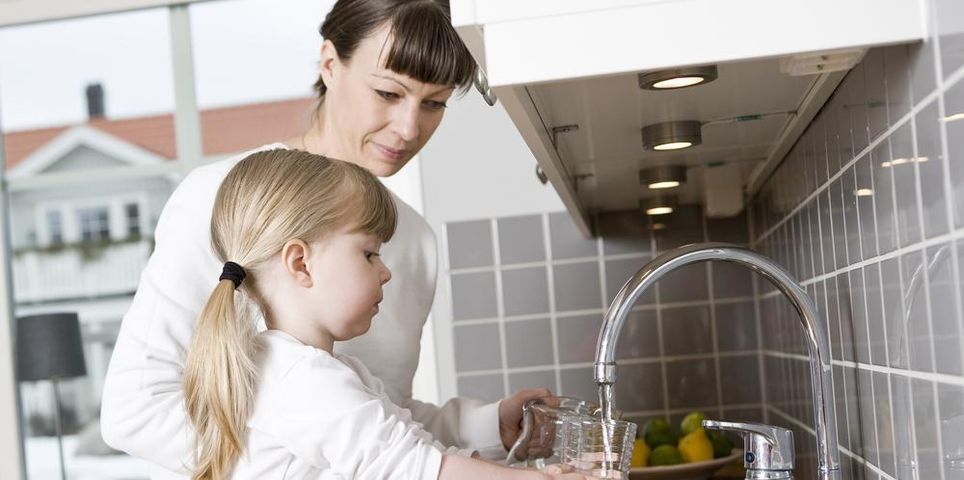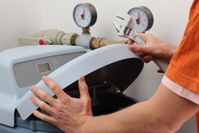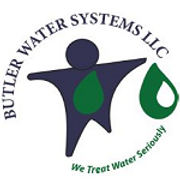5 Great Ways to Fight the Effects of Hard Water

If you’re experiencing hard water issues, you’re not the only one. For residents in high sediment areas, discovering excessive minerals in the water supply is all too familiar. Eventually, those deposits are left behind as stains, which are highly visible on dishes, glassware, and even as buildup on your hair and clothing. Hard water also reduces the effectiveness of plumbing and appliances, decreasing their life span. If you’re having trouble, there are many ways to reduce the effects of hard water, creating a fresher, healthier supply.
5 Ways to Cope With Hard Water
1. Remove Buildup
Buildup accumulates and wears down water-powered appliances, but removing it helps preserve them. Since calcified buildup is more difficult to remove, you’ll want to eliminate it as soon as possible. Use a vinegar/ water rinse to thoroughly clean your most-used appliances, from your coffee maker to your washing machine.
2. Use a High-Quality Water Softener
Ask any professional, and he or she will mention a water softener as the most successful long-term solution. It protects piping and appliances by reducing extra minerals and contaminants in your water supply, so you’ll notice visible results—no more streaks or buildup, longer-lasting appliances, and rust-free piping. It’s a win-win.
3. Remove Soap Stains
 Soap stains create unwanted mineral deposits on your dishes, glassware, and even your clothing, but vinegar helps combat negative effects; mix it with filtered water, rinse thoroughly, and watch stains wash away. For more effective long-term results, browse water purification systems to freshen up the water for a better, more thorough lather during every rinse.
Soap stains create unwanted mineral deposits on your dishes, glassware, and even your clothing, but vinegar helps combat negative effects; mix it with filtered water, rinse thoroughly, and watch stains wash away. For more effective long-term results, browse water purification systems to freshen up the water for a better, more thorough lather during every rinse.
4. Flush Your Heater
Running your hot water heater is a must-have in winter and early spring, but while it helps keep you warm, it also creates buildup. Your plumbing system is complex, and eventually, scale will accumulate, reducing the heater’s effectiveness and causing sediment stockpiles. Flush your heater to prevent clogs; this helps it function at optimal capacity, even in regions with excessive hard water.
5. Dissolve Calcium Deposits
Hard water is composed primarily of calcium, so you’ll want to remove those deposits as much as possible. Since calcium reacts with vinegar, you can place any small, buildup-covered fixtures in a vinegar-filled bowl to slowly dissolve and remove that calcium. Spot cleaning also helps, successfully eliminating unwanted stains.
If hard water is an issue in your home, eliminate it for good with Fairfield, OH’s Butler Water Systems. Serving residents and businesses throughout the area, they offer equipment that results in a pure, contaminant-free water supply. Need a water softener to reduce the effects of hard water? The skilled staff will help select the system that suits your needs. Offering an impressive assortment of high-quality water purification systems, filters, and reverse osmosis setups at affordable prices, these experts have your solution for clean, fresh water. Visit their website to learn more or call (513) 867-5700 to request a free water analysis today.
About the Business
Have a question? Ask the experts!
Send your question

